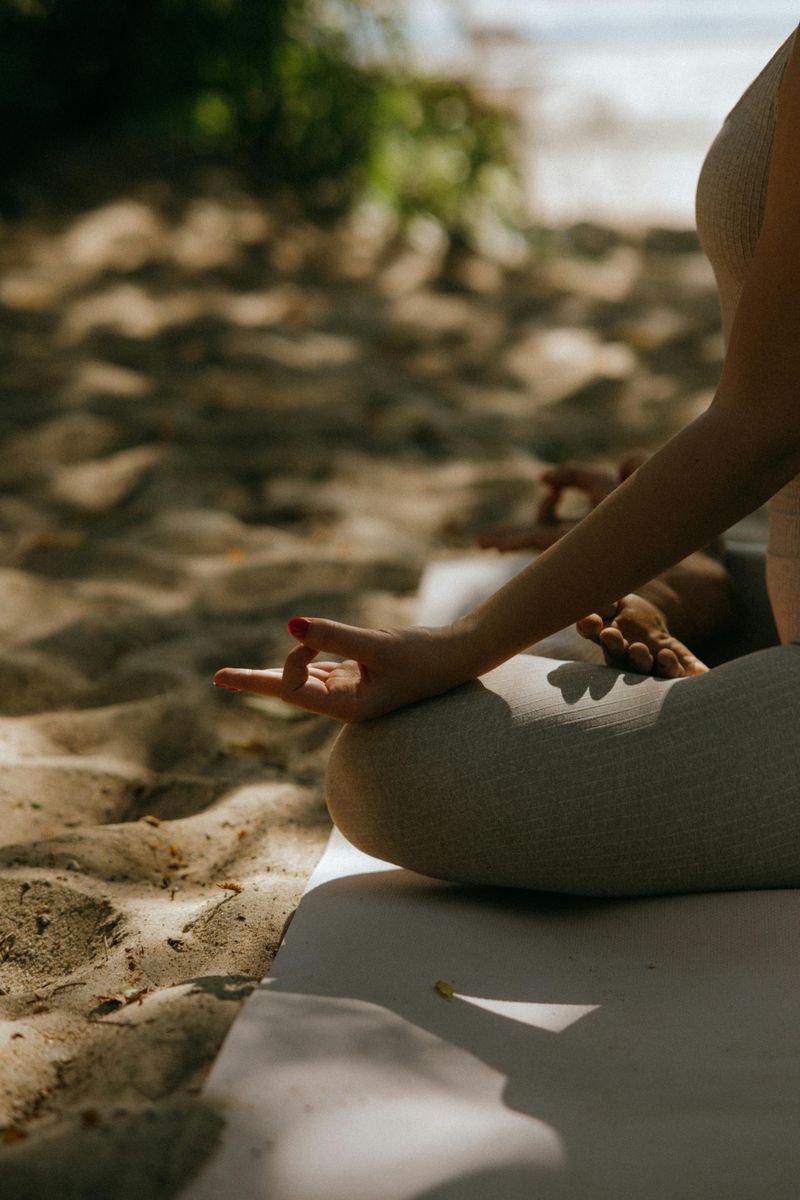Anxiety can create a fog that separates you from your true self, making everyday life feel like walking through a strange landscape. This disconnection happens when worry and fear take over, pushing aside the parts of you that feel familiar and comfortable. Understanding how to bridge this gap isn’t just helpful—it’s essential for reclaiming your sense of identity and finding peace within yourself again.
1. Pause and Name What You Feel

The whirlwind of anxiety often sweeps away your ability to recognize your own emotions. Taking a moment to identify exactly what you’re feeling—whether it’s fear, shame, or overwhelm—can immediately reduce the power these emotions have over you.
Your brain’s alarm center (the amygdala) actually calms down when you put feelings into words. This simple act of naming emotions helps create distance between you and the anxiety.
Try keeping a small notebook with you or using a mood-tracking app to check in with yourself daily. Even five minutes of reflection can help reconnect you with your emotional landscape and remind you that feelings are visitors, not your permanent identity.
2. Reconnect with Your Core Values

Anxiety has a sneaky way of hijacking your attention, pulling you away from what truly matters in your life. Your values—the principles and beliefs that define who you are—often get buried under layers of worry.
Remember the things that light you up inside? Maybe it’s creativity, meaningful connections, honesty, or personal growth. These core values are like your internal compass, guiding you back to yourself when anxiety makes you feel lost.
Make a simple list of three values that matter most to you. Then, choose one small action for each value that you can practice daily. These tiny aligned actions create stepping stones back to your authentic self, even when anxiety tries to pull you away.
3. Ground Yourself in the Present Moment

When anxiety takes over, your mind races forward to worst-case scenarios or backward to past mistakes. Meanwhile, the present moment—the only place where you can actually reconnect with yourself—slips away unnoticed.
Grounding techniques pull you back to now. The popular 5-4-3-2-1 method works wonders: notice 5 things you see, 4 things you can touch, 3 things you hear, 2 things you smell, and 1 thing you taste. This simple exercise redirects your attention to your senses instead of your worries.
Try practicing grounding first thing in the morning or whenever anxiety spikes. Your senses are always in the present moment—they become anchors that can steady you when anxiety makes everything feel unstable.
4. Move Your Body to Release Tension

Anxiety isn’t just mental chatter—it lives in your muscles, your breathing, and your posture. That tight chest, those hunched shoulders, and shallow breathing are physical manifestations of feeling disconnected from yourself.
Your body remembers who you are even when your mind forgets. Moving intentionally helps discharge the nervous energy that anxiety creates and reconnects you with physical sensations beyond worry.
You don’t need intense workouts to feel the benefits. A 15-minute gentle walk focusing on how your feet feel touching the ground, some slow stretching while noticing your breath, or even dancing to a favorite song can help. Regular movement reminds you that you exist beyond your anxious thoughts—you have a physical self that can feel pleasure, strength, and relaxation.
5. Practice Self-Compassion Instead of Criticism

Anxiety often brings along a harsh internal critic that constantly points out your flaws and mistakes. “You should be handling this better” or “What’s wrong with you?” become the background music of your days, making you feel even more estranged from yourself.
Self-compassion creates a path back to self-connection. Imagine how you’d speak to someone you love who’s struggling—you’d probably use gentle words, understanding, and encouragement. This same kindness is what your anxious self needs most.
Try placing a hand on your heart when anxiety strikes and saying something simple like “This is really hard right now, and that’s okay.” Small gestures of self-kindness interrupt the cycle of self-criticism and remind you that you deserve the same care you’d offer others.

Comments
Loading…